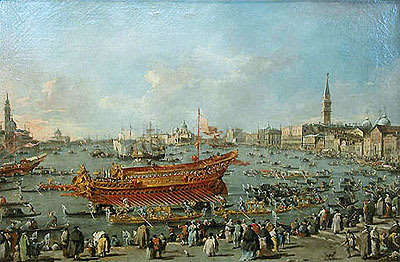19
私は[ヴェネチアのがらんどうの広間や寂れた通りを]過去でいっぱいにできる。
そして現在の目と思念と鎮められた瞑想にとって充分なものがある。
そしてそれは私が望んだり求めたりする以上のものかもしれない。
私の存在という織物を織ってきたもっとも幸せな瞬間のうち、
いくつかはおまえから採った色彩に彩られているのだ、
美しいヴェネチアよ!
<時>も無視できない、<拷問>も歪められない、
いくつかの感情がある。
そうでなければ、もう、私の感情は冷たく唖となるだろう。
XIX.
I can repeople with the past - and of
The present there is still for eye and thought,
And meditation chastened down, enough;
And more, it may be, than I hoped or sought;
And of the happiest moments which were wrought
Within the web of my existence, some
From thee, fair Venice! have their colours caught:
There are some feelings Time cannot benumb,
Nor torture shake, or mine would now be cold and dumb.











